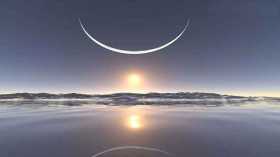
Life has its up and downs, its moments of excitement and most importantly of all - change. Nothing in life is ever the same, and opportunities abound if we have the courage to take the steps down the path towards our goals. It is with this in mind that I am so excited to say that Druid College UK is born, and to share this wonderful news with all of you.
After months of planning and preparation with Kevin Emmons (otherwise known as Snowhawke) from our sister college in Maine USA, the Druid College is pleased to announce its opening, dedicated to Earth-centered spirituality, to the integrity of our natural home, and to the crafting of sacred relationship. In short, The Druid College devotes its presence—and it is its sole intent—to prepare priests of Nature.
Foundations for this life-long journey are established by a three-year, intensive study. Unlike contemporary universities, Druid studies are furthered not only by personal reflection but primarily by ongoing personal connection and spiritual guidance of (i.e., apprenticeship to) a Druid Priest. In the UK as of 2015, those people are Joanna van der Hoeven and Robin Herne.
Being a priest of nature does not mean being an intermediary, but instead living a life in service, crafting a sacred relationship with the land, the ancestors and the gods. It requires service to the community as well as the land, wherein the priest acts as guide, witness or celebrant to a journey or journeys of crafting sacred relationship.
There are many Druid Orders and other pagan and earth-based organizations that offer solid training within their respective traditions. The Druid College is for those who wish to journey further. We wish to work with those who want to be ‘carriers’ of Nature-based spirituality – as compared to ‘followers’. We saw a need for a programme for people who desire to go deeper, for those who wish to be in service, to fill the role of priest for their community and the land they dwell in.
-
 Ah - I see it now! Thanking you! xoxo
Ah - I see it now! Thanking you! xoxo -
 Thanks Ted! On what page exactly do you see that? I can't find it, please help! xoxo
Thanks Ted! On what page exactly do you see that? I can't find it, please help! xoxo -
 OK, let's see. On the Home page for the Druid College United Kingdom, go down to where it says Training Program, and click on Over
OK, let's see. On the Home page for the Druid College United Kingdom, go down to where it says Training Program, and click on Over -
 How exciting! Congratulations to you and Robin, and brightest blessings on this new endeavor. By the way, you'll want to make an a
How exciting! Congratulations to you and Robin, and brightest blessings on this new endeavor. By the way, you'll want to make an a




















